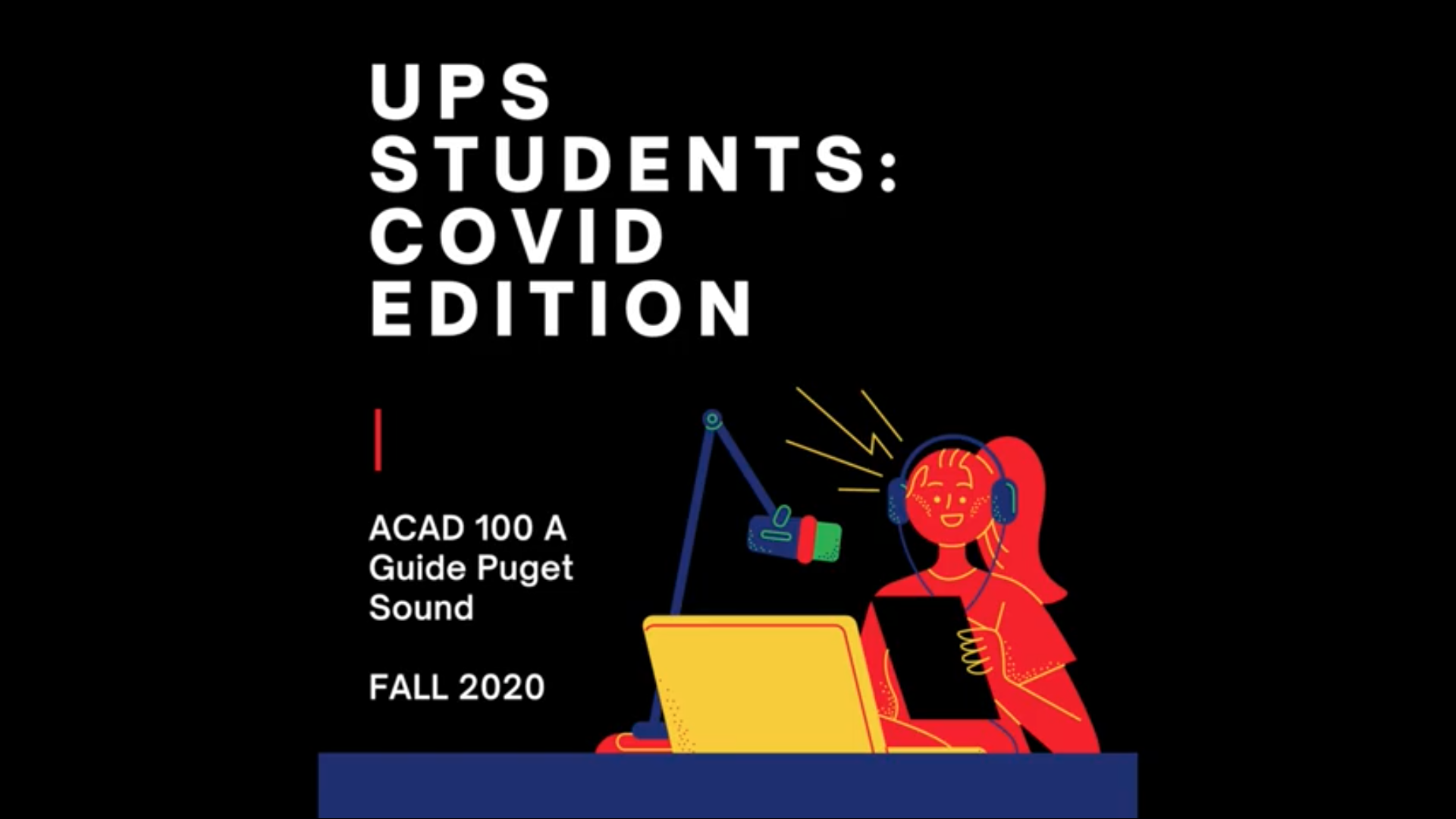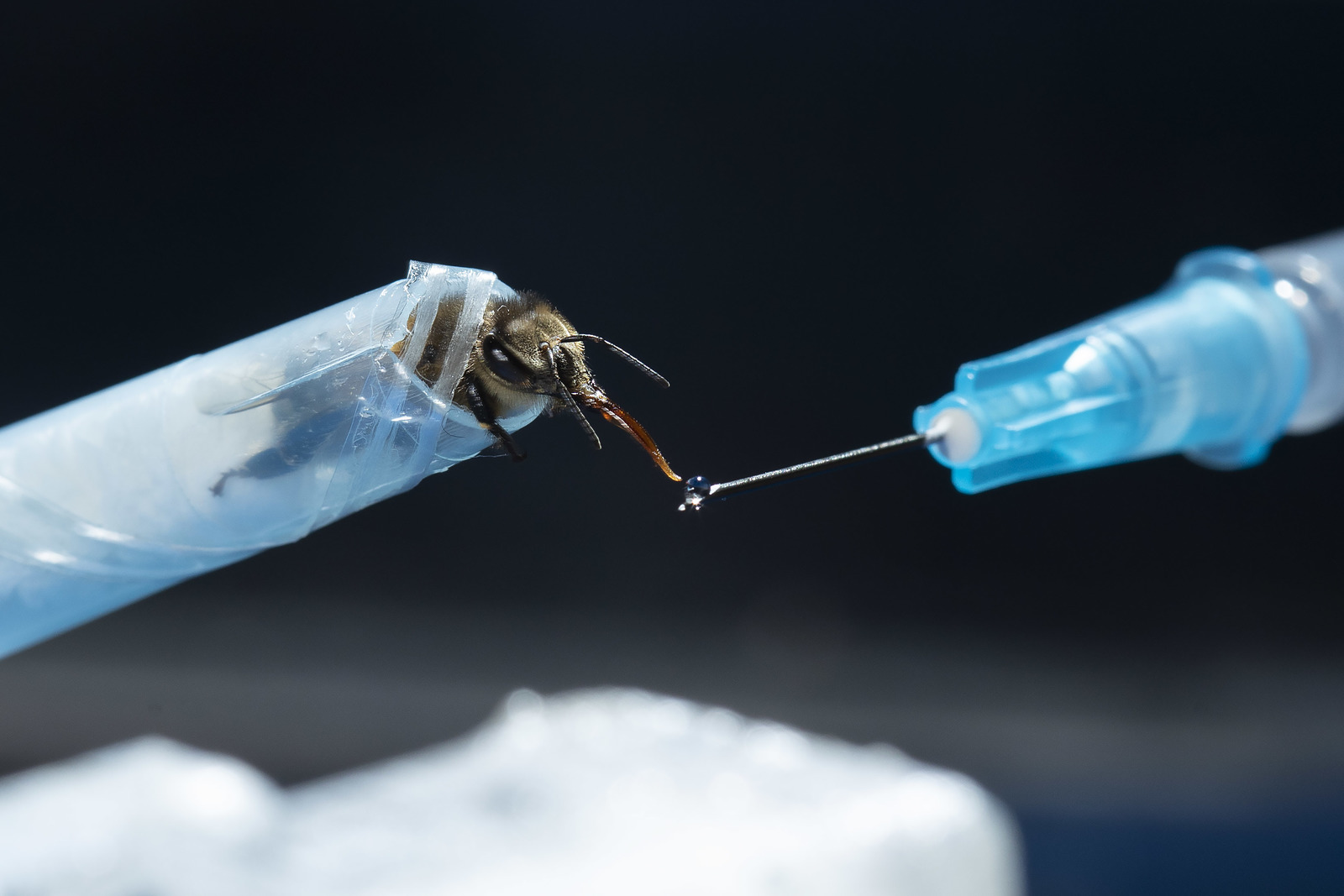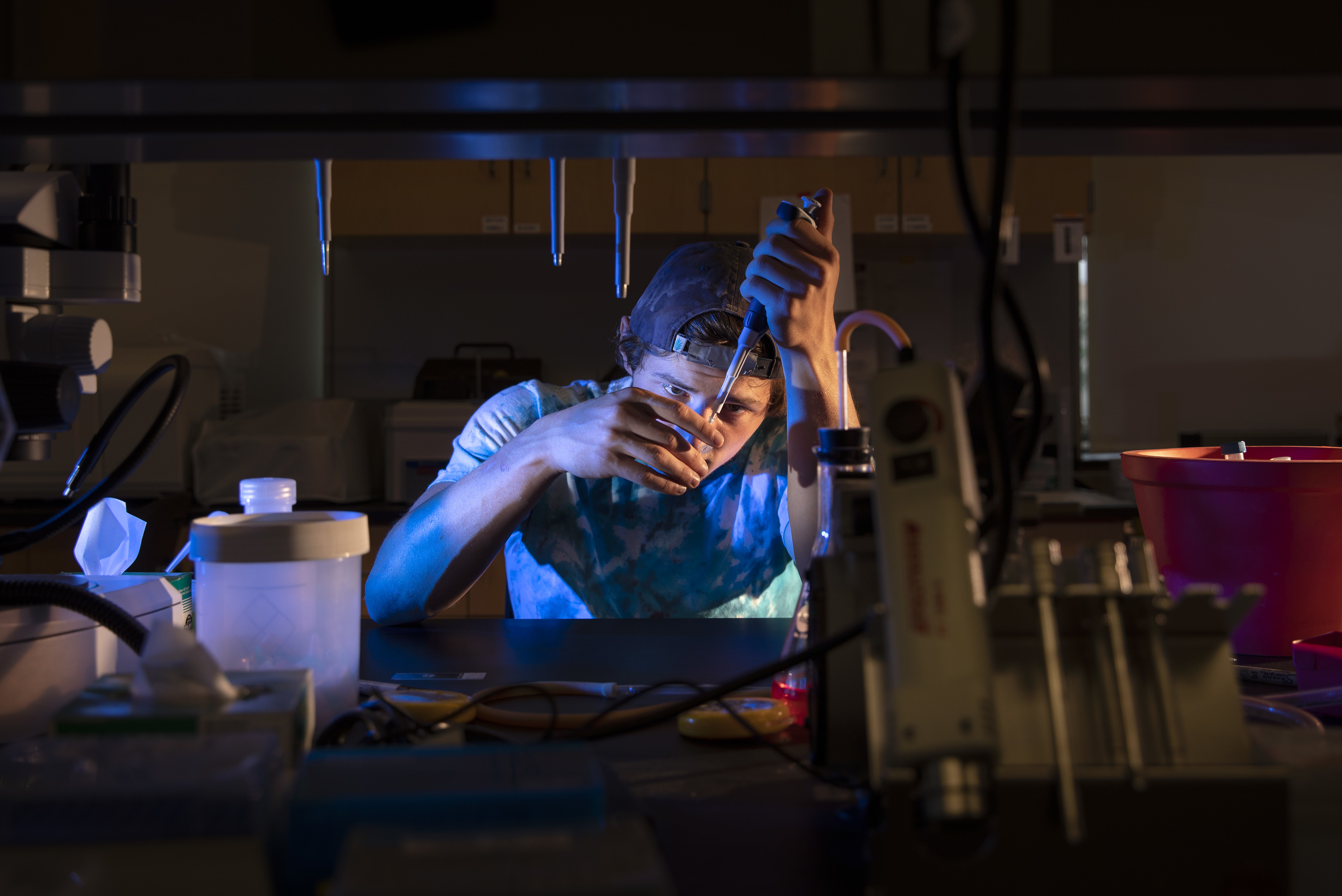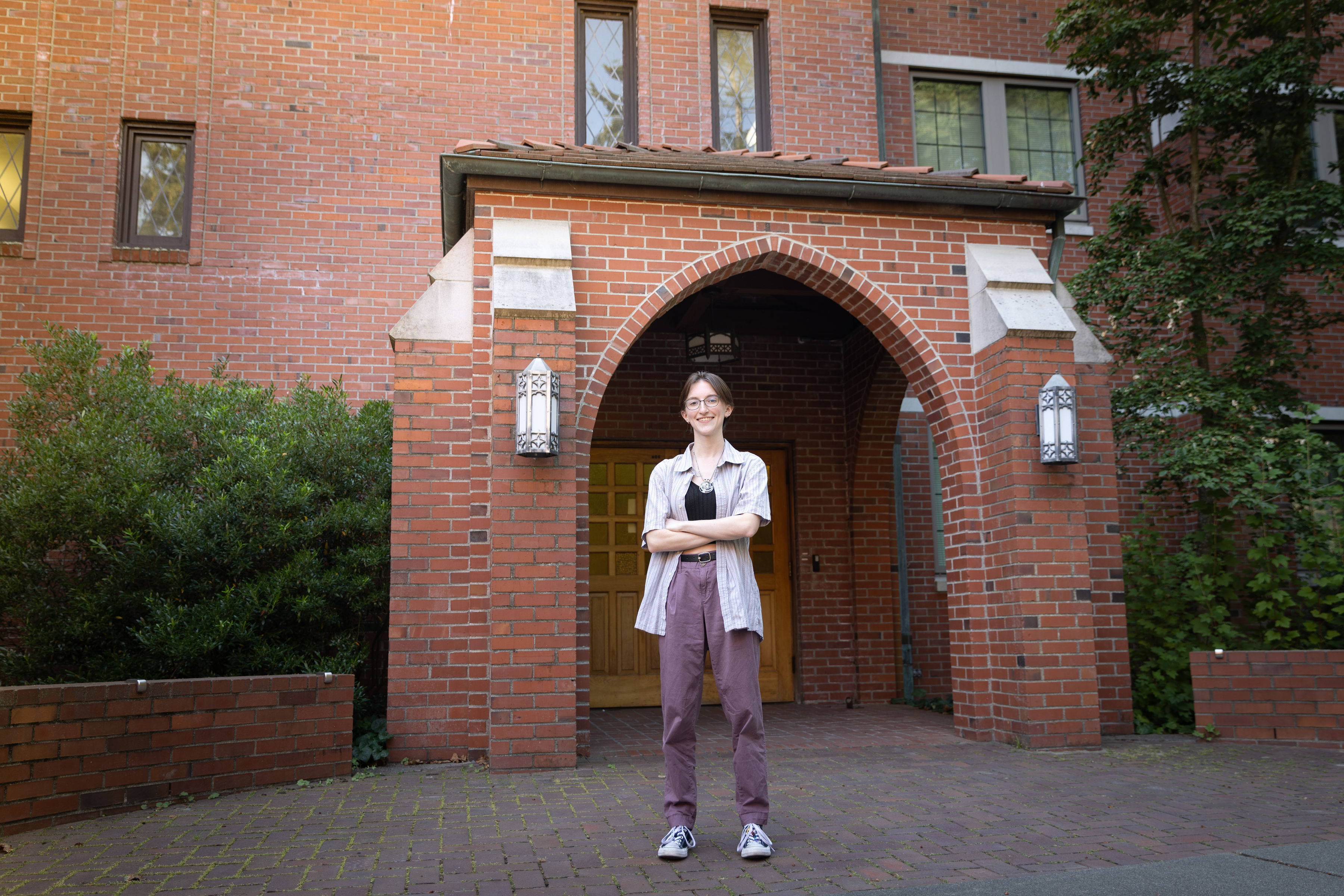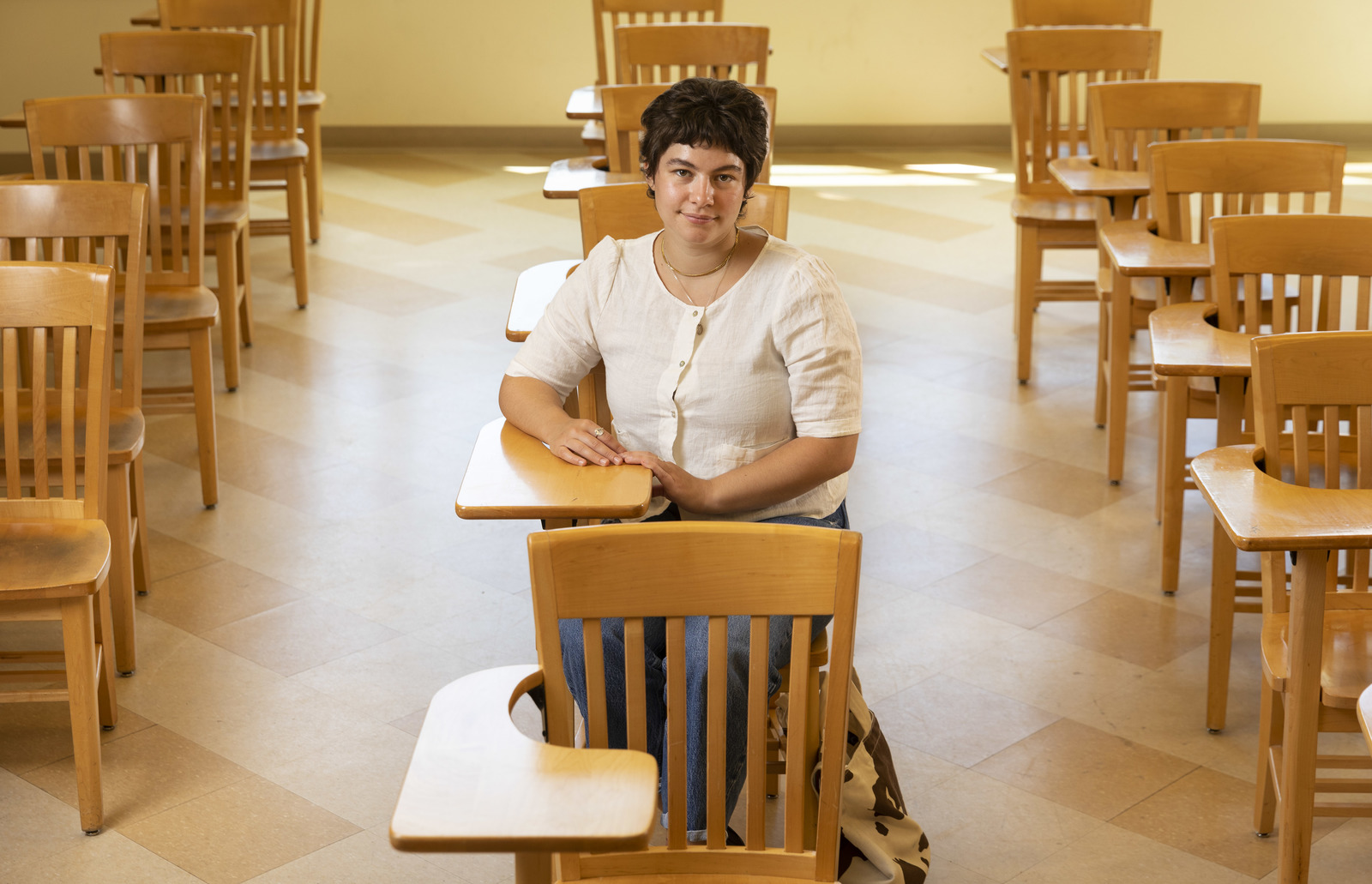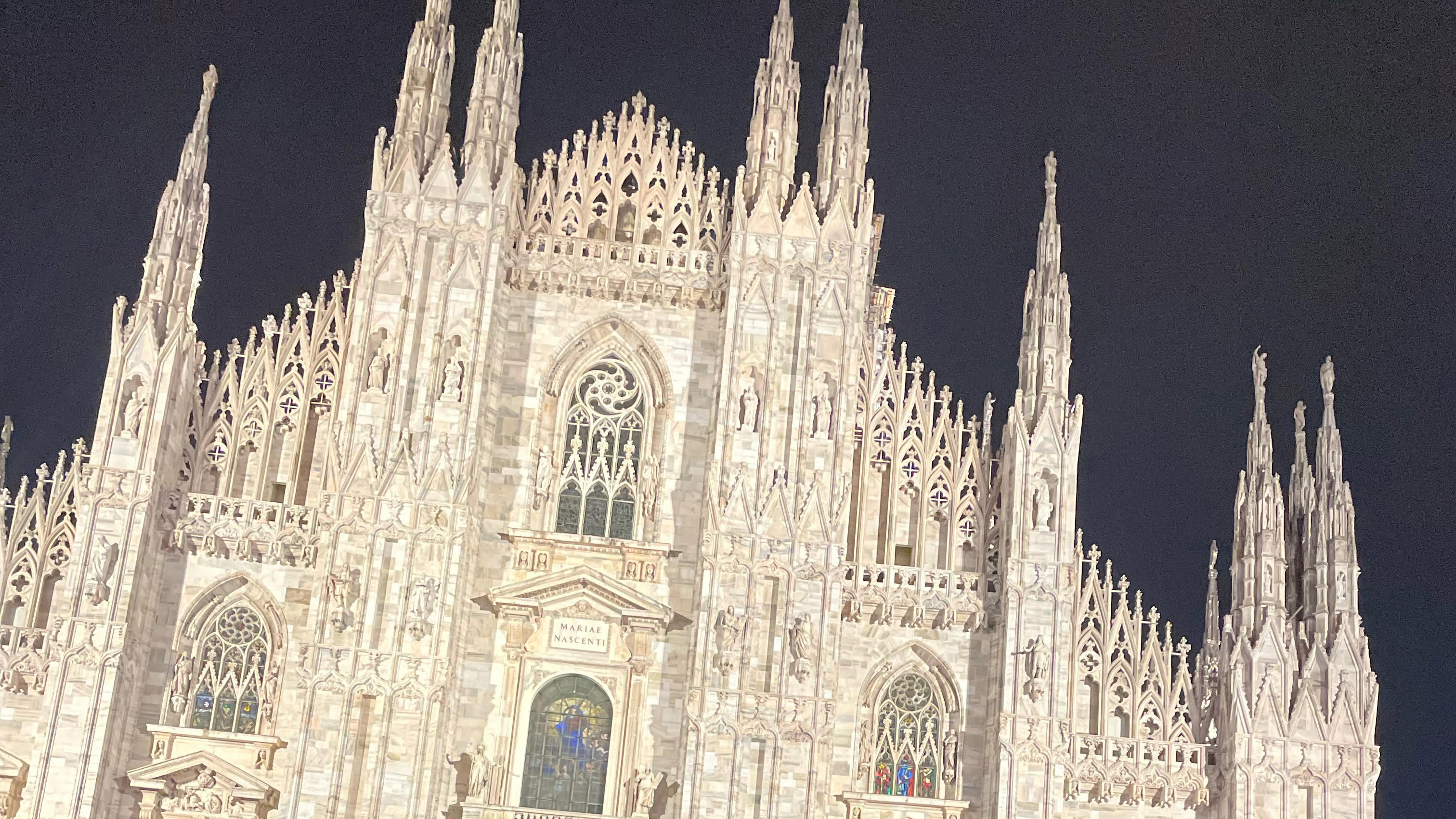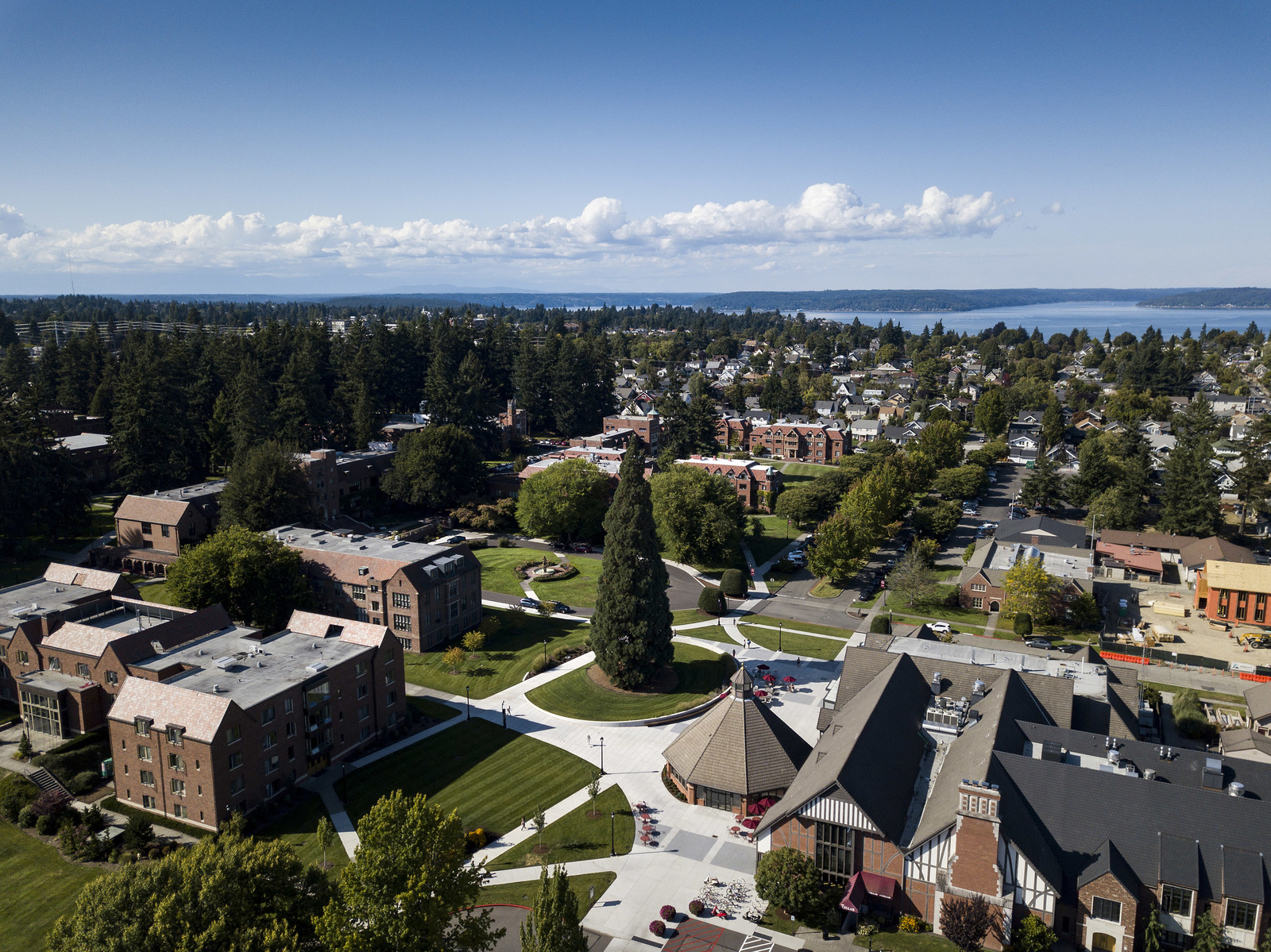These Loggers recorded a podcast to document their first-year experience in the midst of COVID-19.
For students who started college in fall 2020, the first semester of their first year was nothing like they expected. Unable to live on campus or take in-person courses, incoming Loggers instead got to know their professors and classmates online. That’s how Jojo Marshall ’24 found herself sitting at her family’s kitchen table late at night, reading from a script into the voice memo app on her smartphone.
Marshall was making a podcast episode as part of the final project in her Guide Puget Sound course. Guide Puget Sound is a new course designed to help first-year students make the transition to college while building community and skills for academic success. At the end of the semester, the students got to create their own final assignment.
“The only requirements were that it was collaborative and student-driven,” said Greta Austin, professor of religious studies and interim co-director of the Gender and Queer Studies Program, who taught the course. “I suggested the NPR college podcast competition, and they really ran with it.”
Together, the class divided up the work of creating a podcast episode about the COVID-19 pandemic—an issue impacting all of their lives. Marshall took on the role of the host, helping to weave together first-person narratives from her classmates alongside segments about the global effects of the pandemic and the history of the 1918 Spanish Flu pandemic.
